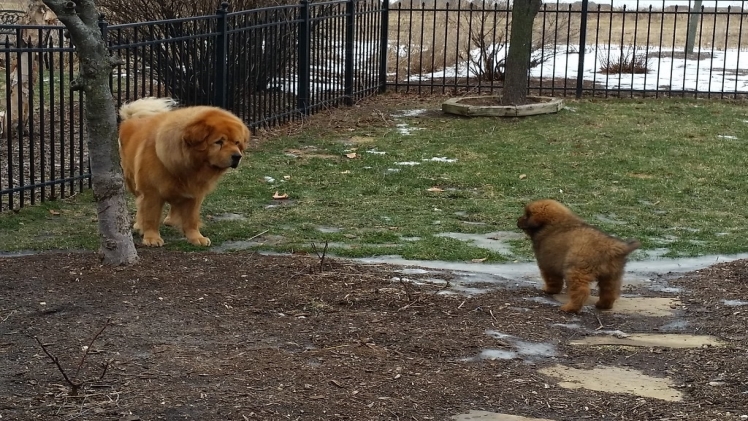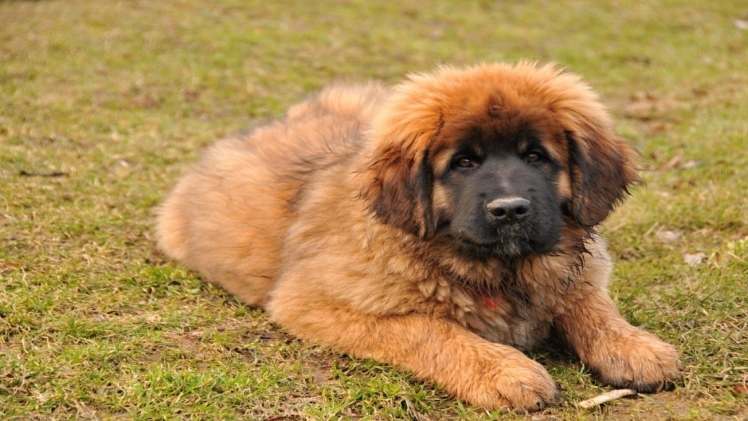When it comes to dog breeding, there is possibly no term that comes up more frequently than “ethics.” Ethics apply to all types of animal breeding, but it is maybe more crucial in the case of dogs than in the case of any other species. Our bond with our pets is unlike any other in the animal kingdom.
Dogs are neither livestock nor self-sufficient companions. Dogs tend to create a profound and lasting bond with us that is stronger than most other human interactions. So, of all the things we might take into our lives, our dogs demand a certain level of trust from those who offer them and accountability from those who own them.
If searching for T Mastiff puppies for sale, you will soon find out that this is by far one of the most expensive breed on the planet. The cost of a puppy can range from 1,000 US dollars – 4,000 US dollars on average. Puppies from top breed lines can cost upwards of 7,500 US dollars.

Why Should Breeders Look For Ethical Buyers?
The role of an ethical buyer in filtering out unethical breeders is critical. Buyers can contribute to eradicating puppy mills and other unethical breeders by insisting on only working with and purchasing from ethical breeders.
Ethical buyers should support ethical breeders, and by removing the market for improperly bred dogs, they help every dog be healthier and happier. There will always be immoral people willing to breed or buy poorly bred, cheap, mass-produced dogs as long as there is a demand for them. Although ethical breeders do not participate in this industry, they are powerless to prevent it.
Only ethical buyers have the ability to do so. In truth, no ethical breeders’ association can compel a breeder to really be ethical. No one has the authority to tell another how to breed or care for their dogs. However, if people refuse to purchase from unethical breeders, they will eventually go out of the market, and the lives of many dogs and people will be improved as a result.
So, why should a breeder or a buyer be ethical? The basic explanation is for the dogs’ own benefit. Because we, as humans, all play a role in bringing T Mastiff puppies into the world and are therefore responsible for their care throughout their lives, it’s indeed incumbent on both the buyer as well as the breeder to treat the dogs and each other ethically.

Ethical T Mastiff Breeders
If you really want to buy TM pups, you’ll need to ask lots of questions. You should not purchase a puppy from any breeder since you may not receive a healthy puppy. You should receive your money’s worth, which means getting a loyal furry friend. There’s a chance you’ll acquire a dog that wasn’t properly bred.
You should also inquire as to whether T Mastiff Breeders have bred other breeds in the previous years and whether they are actively breeding other dogs. If you learn that they are currently breeding a large number of dogs, you are speaking with a genuine dog lover. If the breeder appears to be a beginner, you should inquire as to whether he was guided by a more expert breeder.
To help you choose, we will list down some of the ethical breeders that we have found.
1. TEMZIN
They are very proud of their high-quality TMs and have worked hard to source good breeding stock from a variety of world-renowned lineages in order to maintain the health and longevity of this unique and rare breed in Australia.
Prior to entering their breeding program, all of their breeding dogs are thoroughly examined for health issues. They take the effort to display their dogs in front of reputable international and Australian judges, ensuring that their lineages’ champion status is maintained.
They frequently import new lines to preserve their kennel’s bloodlines healthy and loyal to the authentic type T Mastiff found on the steeps & plateaus of Tibet and the Himalayas for several years throughout history. Additionally, they are constantly working to increase their dog’s qualities
2. SHANTISOUL
They are a multi-cultural group with lineages from Taiwan, China, Europe, India, and the United States, and they wish to breed puppies for ethical people in Australia. They offer puppies without co-ownership or contracts, but they only choose the ideal homes for them, so please only contact them if you intend to keep your puppy for the rest of his or her life.
They are firmly opposed to puppy farms and those that breed for profit.
3. BUSHSONG
Their TMs are members of the family, active and engaged in all aspects of daily life, both indoors and out. Bush Song is Australia’s only true ‘Free Range’ T Mastiff kennel, with a daily free run of 3 acres of native bushland with huge open areas.
All of them have won the Australian Championship. JETT, their homebred male, was named Grand Champion, a wonderful true-to-type representation of the breed. Bonnie, their matriarch, was the first Australian TM to win the title of Champion Neuter twice in 2016.
4. AKEELA
Akeela Kennels is about an hour west of Melbourne, in the charming town of Greendale, which is nestled between Bacchus Marsh and Ballarat. Akeela takes pleasure in producing T Mastiffs that are both physically and temperamentally healthy. They make a conscious effort not to breed dogs who are psychologically unstable or unpredictable.
Before releasing their puppies into new homes, they make certain that you, as the new pet parent, are given as much information as possible to guarantee that you and your puppy are well-suited and have a good life together. The truth is that TMs do not re-home easily, and divorce is not in their language.
5. JANGBU
Jangbu strives to introduce Australian families to rare T Mastiffs. Their dogs are brought in from all over the world, with Tibetan & Chinese bloodlines, or from Asia itself. They breed TMs with gorgeous Asian types that are strong, powerful, and substantial.
They provide lifelong support to their extended family members and strive to provide the best possible start in life for their puppies by providing proper diet, health care, socialization, training, and handling. They enjoy talking to other people about their pets and the breed in particular. They are always willing to help with rehoming and offer guidance and information.

